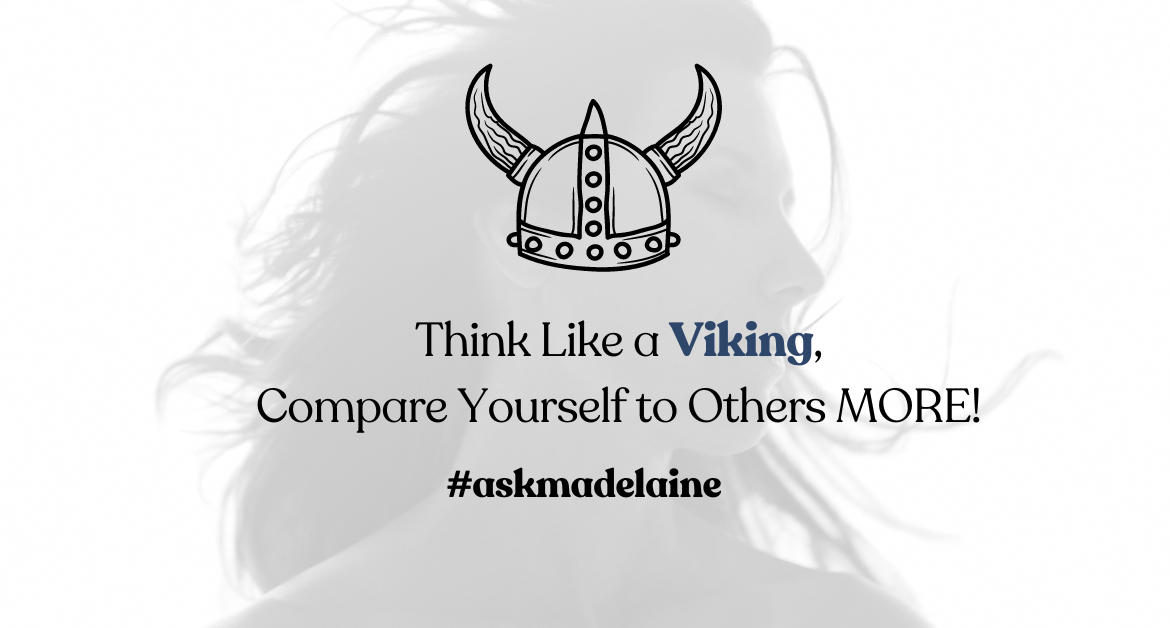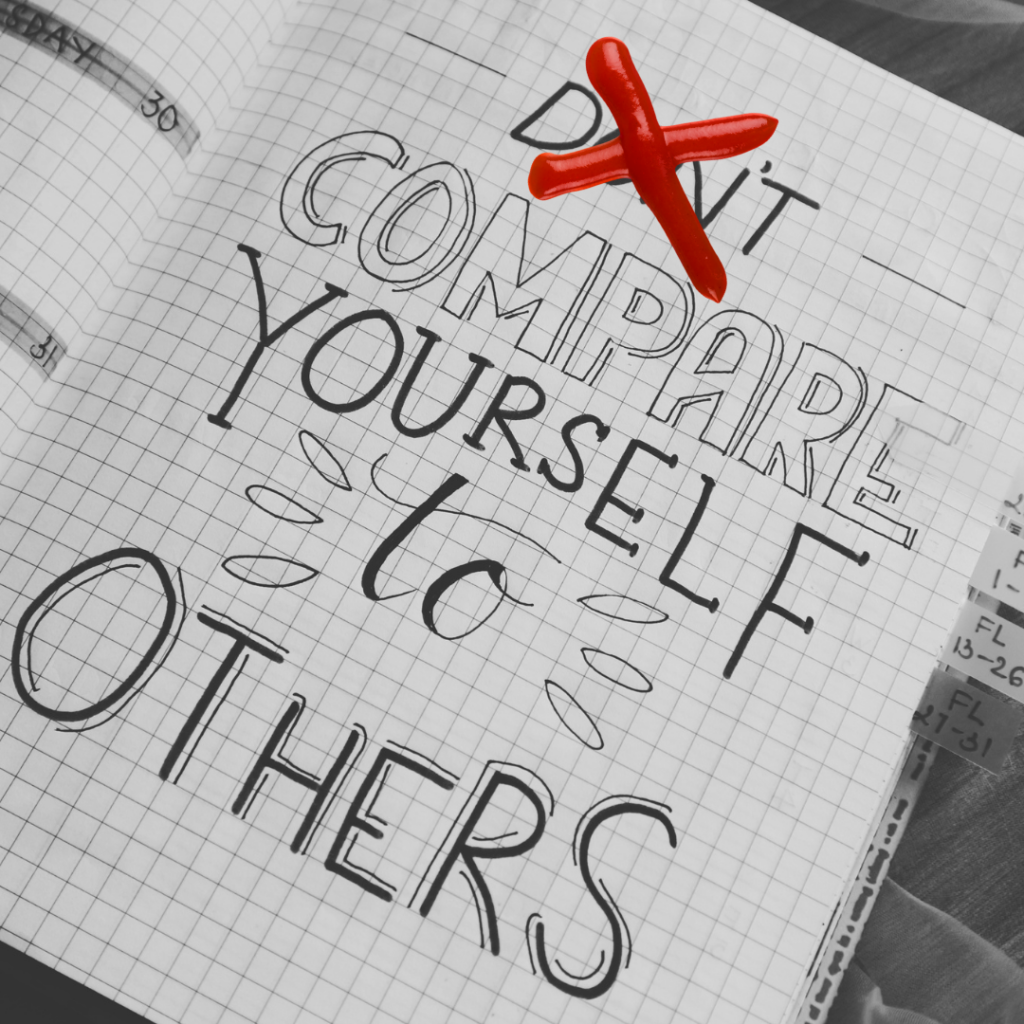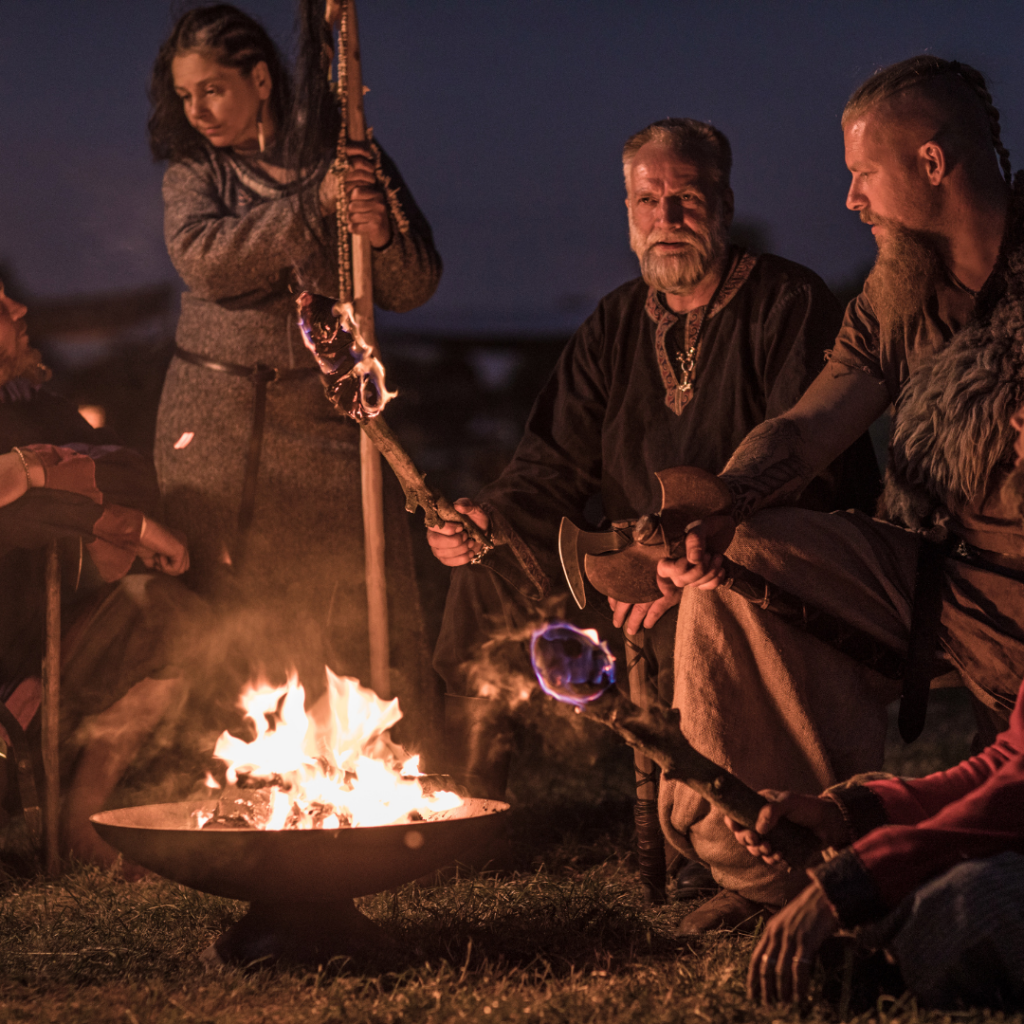

The Gift of Comparison.

In today’s world, we often hear that comparing ourselves to others is detrimental to our self-esteem and happiness. The prevailing narrative suggests that we should stop comparing ourselves and focus solely on self-acceptance. However, I’m here to tell you that comparing yourself can be a gift, a tool for personal growth and collective abundance. Let’s delve into the ancient Nordic perspective on comparison, which dates back to Viking times, and how it can shape a more harmonious and successful way of life.
The Negative Connotation of Comparison:
In the modern context, comparing ourselves to others is often associated with a sense of inadequacy. It can lead to feelings of not being good enough and damage our self-esteem. However, if we look back to Viking times and beyond, we find a different viewpoint, one that highlights the power of shared experience and knowledge.
“Comparison, when done with the intention of learning and growth, can be a powerful tool for personal and collective development.”
Madelaine Vallin
Learning from the Past: Ancient Nordic Wisdom:

In ancient times, particularly during the Viking era, comparison was not a source of negativity but a means of learning and growth. Viking communities relied on tight-knit bonds for survival, and comparison was a way of life. Farmers didn’t just compare themselves to their neighbors for the sake of competition; it was a necessity for survival.
In those days, Vikings compared techniques on how to grow crops, where to find food, and even how to go into battle. This sharing of knowledge and experiences wasn’t just a choice; it was essential for the community’s well-being. It was the foundation of collective progress, much like the modern concept of sitting around a campfire together, sharing stories, experiences, realizations, and insights.
Through this historical lens, we can see that comparing ourselves to others was not about fostering self-doubt but about collective flourishing. In that spirit, we can revive the ancient wisdom that promotes shared learning and growth for the benefit of all.
The Essence of Abundance: It’s Plural, Not Singular:
The crucial lesson from this Nordic wisdom is that abundance is not a solitary pursuit; it is plural. In Sweden, there is a word called “LAGOM,” which means not too little and not too much. Traditionally, LAGOM was sometimes misunderstood as a hindrance to personal growth, as it appeared to limit ambition. The prevailing notion was that “more” equated to “better.” However, with time and a reconnection to heritage, it becomes evident that LAGOM transcends the constant need for more.
Abundance is not a single, all-encompassing state but a collective, shared experience. It is about striking the right balance, embracing what is “just enough” for a fulfilling life.
“Abundance is not a singular journey; it’s a shared path where we collectively become more abundant, step by step.”
Madelaine Vallin
Embracing the Power of Comparison:
Now, let’s return to the idea of comparison. When we open ourselves up to comparing our experiences, knowledge, and expertise with others, we foster an environment of mutual growth. It’s not about competing to be the best; it’s about working together to become the best versions of ourselves.
If you find yourself feeling inadequate when you compare yourself to others, it might be an indicator that you’ve isolated yourself, seeing success as an individual pursuit. The belief that you must outperform someone else to be “good enough” can lead to seclusion and a reluctance to share your wisdom.
Unifying Abundance:
When we break down these self-imposed barriers and allow ourselves to share, listen, and learn from others, we create a space where comparison becomes a force for collective growth. This is the essence of unifying abundance – recognizing that the pie can be made larger, and we can all enjoy a more abundant slice.
In conclusion, don’t stop comparing yourself. Embrace it as a gift, a means to connect with others, and collectively grow. Abundance is not an individual journey; it’s a shared path. Let’s remember the wisdom of the ancient Vikings, who thrived by learning from one another and harmonizing their lives with LAGOM. In unity, we can all become more abundant, together.
Reflection Questions:
- How can you shift your perspective on comparison from a source of self-doubt to a catalyst for personal and collective growth in your own life?
- In what ways can you apply the concept of “LAGOM” in your pursuit of abundance, striking a balance between too little and too much, and embracing the idea that abundance is plural rather than singular?
🌿 I Frid (In Peace), Madelaine
